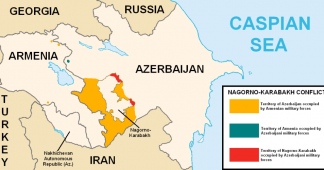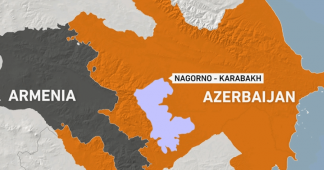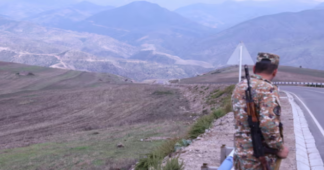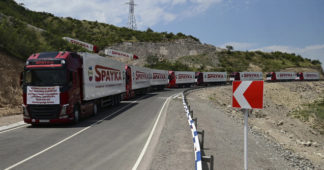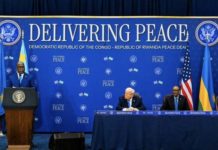Nagorno-Karabakh’s 120,000 Armenians will leave for Armenia, leadership says
As Azerbaijan reclaims Nagorno-Karabakh, the vast majority of Armenians living there will leave, authorities have said. The region’s de-facto leadership has said it is unclear when they will be able to flee for Armenia.
24 September 2023
Almost all the 120,000 Armenians living in war-torn Nagorno-Karabakh will leave for Armenia, the region’s de-facto leadership has said, after Azerbaijan regained control of the breakaway region.
The Armenians of Karabakh were forced to declare a ceasefire on Wednesday as Azeri forces reclaimed the territory following a 24-hour offensive.
The US and EU have expressed “deep concerns” for the Armenians in Karabakh, which is recognised internationally as part of Azerbaijan but had been under Armenian control since the fall of the Soviet Union.
Armenians say they fear repression and ethnic cleansing – allegations strongly denied by Azerbaijan.
David Babayan, an adviser to Samvel Shahramanyan, the president of the self-styled Republic of Artsakh, which is the Armenian name for the region, has warned of a mass exodus and says his people will not be part of Azerbaijan.
“Our people do not want to live as part of Azerbaijan, 99.9% prefer to leave our historic lands,” he said. “The fate of our poor people will go down in history as a disgrace and a shame for the Armenian people and for the whole civilised world.”
He said it was unclear when the Armenians would move down the Lachin corridor, which links the territory to Armenia, where Prime Minister Nikol Pashinyan has faced calls to resign for failing to save Karabakh.
Meanwhile, long-awaited aid has arrived in the region following a nine-month blockade imposed by Azerbaijan, which dwindled the Armenians’ food, fuel and medical supplies.
Azerbaijan has repeatedly said no harm will come to civilians – though reports suggest some may have died and residential buildings were damaged during the latest attack.
The country’s ambassador to the UK, Elin Suleymanov, rejected claims his country would “ethnically cleanse” the region.
He told Sky News: “That is completely untrue. First, you don’t offer food and aid to people you are planning to ethnically cleanse.
“Second, it was Armenia that committed ethnic cleansing in the 1990s. The reason there are only Armenians living in the region today is because the Armenians ethnically cleansed everyone else. It was a diverse region before the 1990s.
“We don’t want to do what they did to us, we want to integrate that community into the diverse fabric of Azerbaijani society.”
Asked if there could be peace, he said: “Of course there can be peace, there was peace in Europe after the Second World War, people nuked each other and now they are still friends.”
The military offensive exacerbated problems for the population there, with many said to be sleeping outdoors and unable to get in touch with family and friends in rural areas
The potential exodus from Karabakh marks another twist in the region’s tumultuous and bloody history, with both Armenians and Azerbaijanis suffering greatly over the years.
Hundreds of thousands of Azerbaijanis were displaced following the first war between 1988-1994, which saw Armenian forces take control of the region and occupy surrounding areas.
The fate of the conflict’s latest displaced people remains unclear, but Mr Pashinyan said in an address to the nation on Sunday that Armenia is ready to accept all compatriots from Karabakh.
Also read
SOS Alert – Artsakh
We remind our readers that publication of articles on our site does not mean that we agree with what is written. Our policy is to publish anything which we consider of interest, so as to assist our readers in forming their opinions. Sometimes we even publish articles with which we totally disagree, since we believe it is important for our readers to be informed on as wide a spectrum of views as possible.
